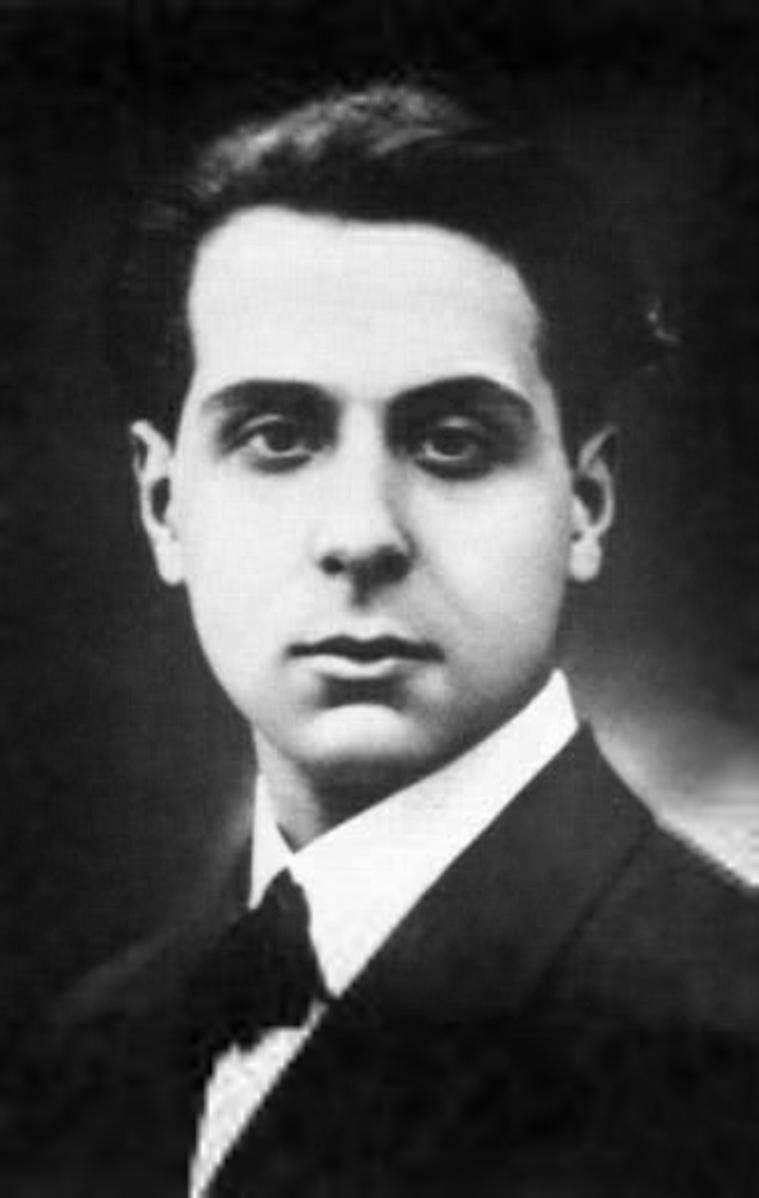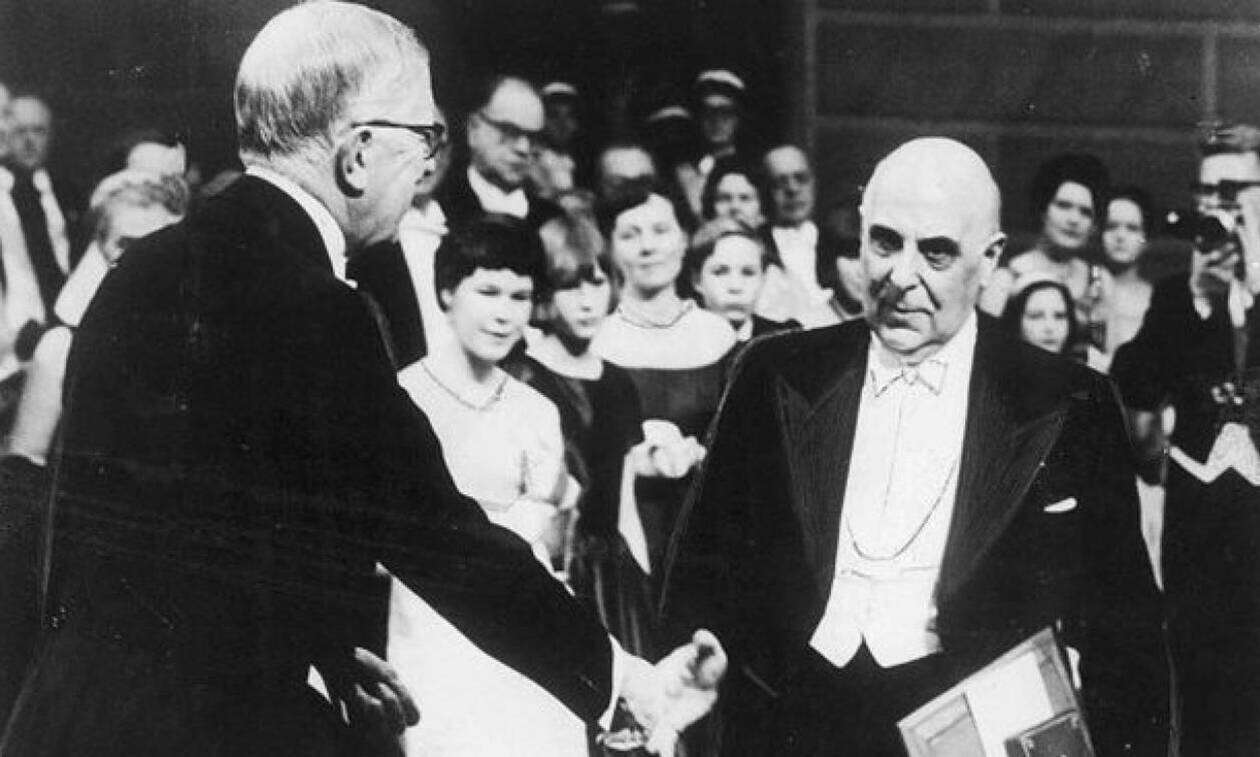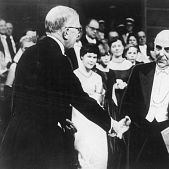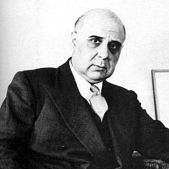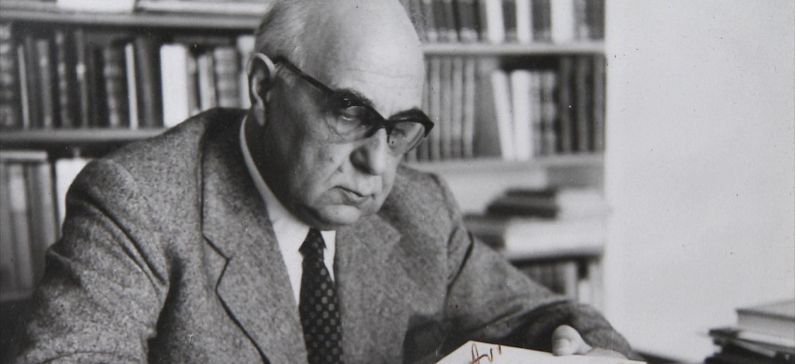
A Nobel Prize awarded Greek poet
George Seferis is one of the most important Greek poets. Seferis received the Nobel Prize in Literature in 1963.
His real name was Georgios Seferiades. He was born on 13 March 1900 in Smyrna, Asia Minor. He attended school in Smyrna and finished his studies at the Gymnasium in Athens. In 1918, his family moved to Paris where Seferis studied law at the University of Paris and became interested in literature.
The Greek poet returned to Athens in 1925 and was admitted to the Royal Greek Ministry of Foreign Affairs in the following year. This was the beginning of a long and successful diplomatic career, during which he held posts in England (1931-1934) and Albania (1936-1938).
During the Second World War, Seferis accompanied the Free Greek Government in exile to Crete, Egypt, South Africa and Italy and returned to liberated Athens in 1944. He continued to serve in the Ministry of Foreign Affairs and held diplomatic posts in Ankara (1948-1950) and London (1951-1953). Seferis was Royal Greek Ambassador to the United Kingdom from 1957 to 1961, the last post before his retirement in Athens.
Seferis received many honours and prizes, among them honorary doctoral degrees from the universities of Cambridge (1960), Oxford (1964), Salonika (1964), and Princeton (1965).
His travels provide the backdrop and colour for much of Seferis’s writing. Seferis’s early poetry consists of “Strophe” (Turning Point), 1931, a group of rhymed Lyrics strongly influenced by the Symbolists and “E Sterna” (The Cistern), 1932, conveying an image of man’s most deeply felt being which lies hidden from and ignored by, the everyday world.
His mature poetry begins with “Mythistorema” in 1935, a series of twenty-four short poems which translate the Odyssean myths into modern idiom. In “Tetradio Gymnasmaton” (Book of Exercises), 1940, “Emerologio Katastromatos” (Logbook I), 1940, “Emerologio Katastromatos B” (Logbook II), 1944, “Kihle” (Thrush), 1947 and “Emerologio Katastromatos C” (Logbook III), 1955, Seferis is preoccupied with the themes he developed in “Mythistorema”, using Homer’s Odyssey as his symbolic source. The “Tria Krypha Poiemata” (Three Secret Poems), 1966, consists of twenty-eight short lyric pieces verging on the surrealistic. In addition to poetry, Seferis has published a book of essays, “Dokimes” (Essays) in 1962.
In 1963, Seferis was awarded the Nobel Prize for Literature “for his eminent lyrical writing, inspired by a deep feeling for the Hellenic world of culture.” Seferis was the first Greek to receive the prize, followed later by Odysseas Elytis, who became a Nobel laureate in 1979.
TIPS...
-His house at Pangrati district of central Athens, still stands today at Agras str.
-There are commemorative blue plaques on two of his London homes – 51 Upper Brook Street, and in Sloane Avenue.
-His book of poems “Imerologio Katastromatos III” was inspired by the island of Cyprus and mostly written there.

